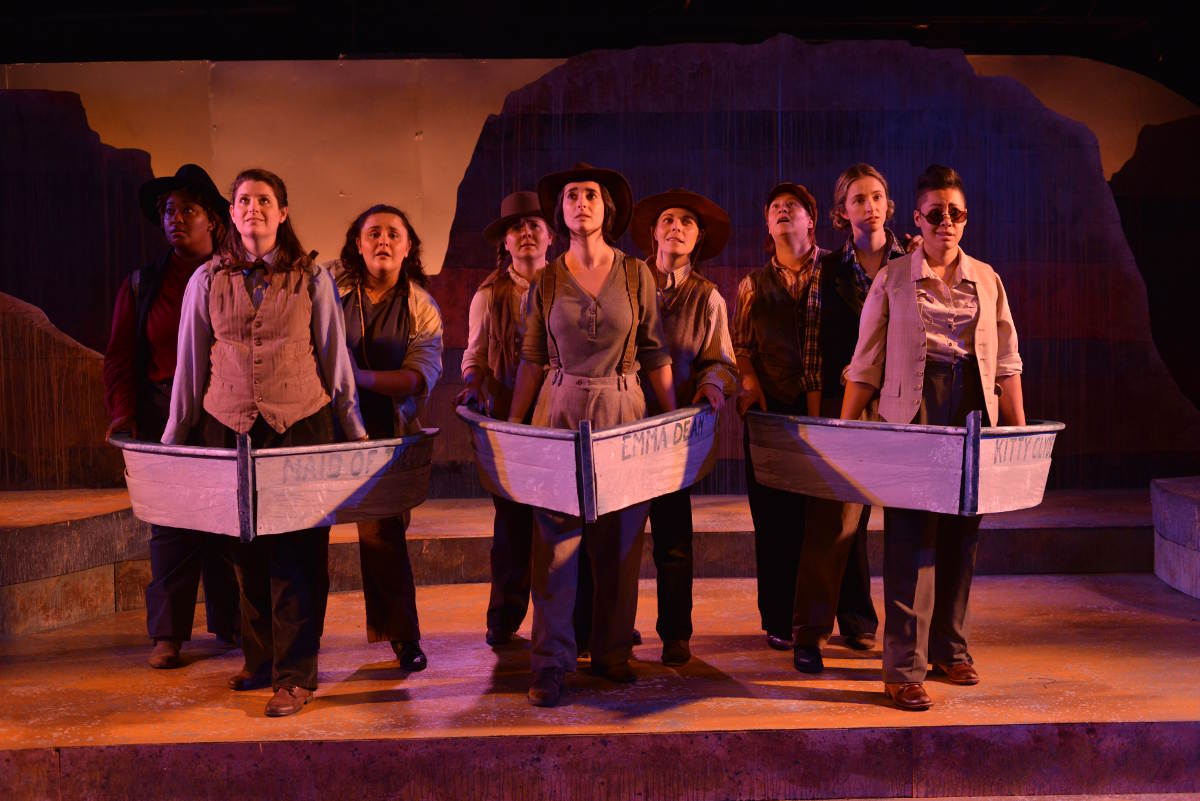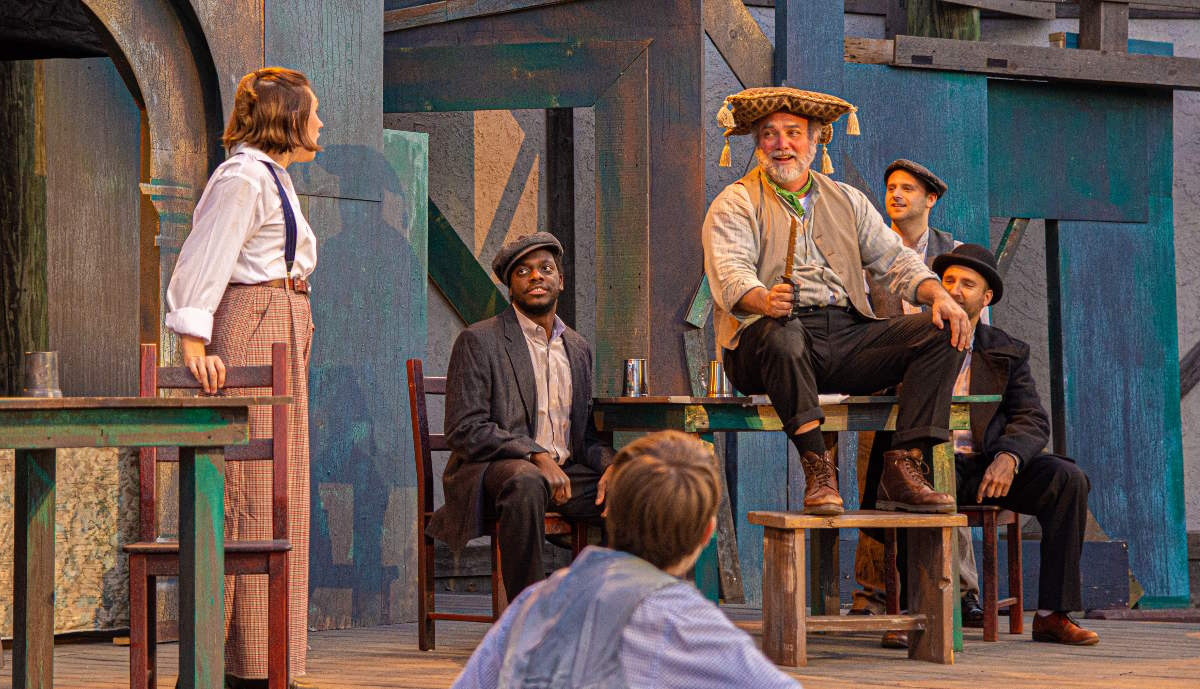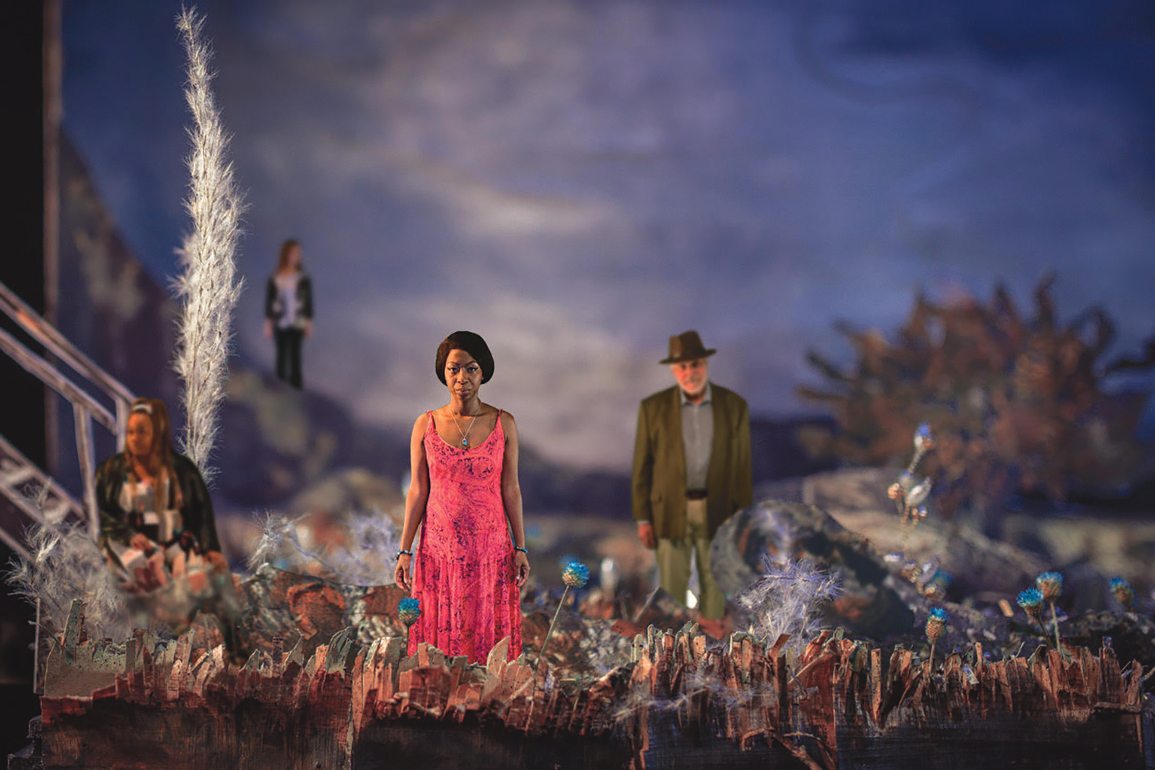
STRATEGIC PLANNING PROCESS
In February of 2019, the Riverside Theatre Board of Directors voted to approve a motion to engage in a formal strategic planning process. The motion included the approval of an ad hoc Strategic Planning Committee, as well as an approval to use the consulting services provided by the Larned A. Waterman lowa Nonprofit Resource Center.
From February to July, the five-member Strategic Planning Committee held more than a dozen meetings. The first several months of meetings were focused on urgent fundraising efforts that were necessary for the organization’s short-term financial stability. The short-term fundraising objective was achieved. Throughout the spring and summer months, committee members gathered and reviewed internal data and external reports, as well as the strategic plans of private and public organizations such as the lowa City Downtown District, the City of Iowa City, the lowa Arts Council, and beyond.
In July and August, online surveys were distributed to the board, staff, and volunteers. The surveys focused on culture, communication, board experience, employee experience, and employee engagement, as well as the organization’s strengths, weaknesses, opportunities, and threats. The results of the surveys were compiled, analyzed, discussed, and used to prepare for an all-day strategic planning session.
On September 21, the board and the producing artistic director participated in an all-day strategic planning session, with staff members joining for part of the day. The session focused on updating the mission, vision, and values of the organizations, as well as clarifying and coalescing around a set of goals. Participants separated into groups to begin drafting action plans focused on the outcomes, objectives, and indicators necessary to achieve the stated goals.
The members of the Strategic Planning Committee were Lois Cox, Cynthia Schmidt, Carolyn Russell Wallace, & Derek Willard (Board of Directors); and Adam Knight (Producing Artistic Director). Paul Thelen (Larned A. Waterman Iowa Nonprofit Resource Center) facilitated discussions.
MILESTONES
1981 Riverside Theatre was founded by Ron Clark, Jody Hovland, and Bruce Wheaton.
1982 The company’s first play, THE EXERCISE, opened in January 1982 and ran for two weeks at The Old Armory with a total budget of just $100. Beginning in the spring of 1982 and for the next eight years, Riverside rented space at Old Brick, but as company size and performance schedules grew, it looked for a permanent space.
1990 RT signed a lease, gutted a former beer distribution warehouse on Gilbert Street, built a stage, hung lights, and laid carpet, all within 15-week period, while rehearsing for the season’s opening production. With less than $50,000 – and the assistance of volunteers, donated skills and materials – Riverside converted the space into a 3,200 square-foot theatre with a 118-seat house and a proscenium stage.
2000 The inaugural Riverside Theatre Shakespeare Festival took place in June 2000, in a new, permanent, 472-seat outdoor Globe-inspired amphitheater in Lower City park built by the City of Iowa City specifically for Riverside Theatre (The Riverside Festival Stage). TWELFTH NIGHT was the first play. To fund the initial four years of summer season costs, Riverside raised over $500,000.
2008 Severe flooding in the region disrupted summer programming; the plays were performed at City High.
2012 Summer programming rebranded as Riverside Theatre in the Park.
SUMMERS SINCE THE FLOOD
2013 – 2014 Controlled flooding made the parking lot in lower City park inaccessible and all programming was moved indoors (to West High in 2013, RT’s Gilbert St. theatre in 2014).
2015 RT chose to program indoors at Gilbert St.
2016 Two plays were produced outdoors.
2017 One play was produced outdoors and one indoors.
2018 Riverside programs one Shakespeare play in the Park each summer and makes it FREE for all patrons going forward.
2015-2016 Sam Osheroff hired as RT’s and Artistic Director. Founders Clark and Hovland retired.
2016-2018 Sean Christopher Lewis hired as RT’s next Artistic Director (interim).
2018-2019 Adam Knight hired as RT’s permanent Producing Artistic Director.
SPRING 2020 COVID-19 pandemic shuts down theatres and businesses across the country.
SUMMER 2020 Riverside announces it is leaving its longtime downtown home on Gilbert Street and beginning search for new permanent home. RT announces 40 th Anniversary season featuring a combination of virtual performances in various venues.
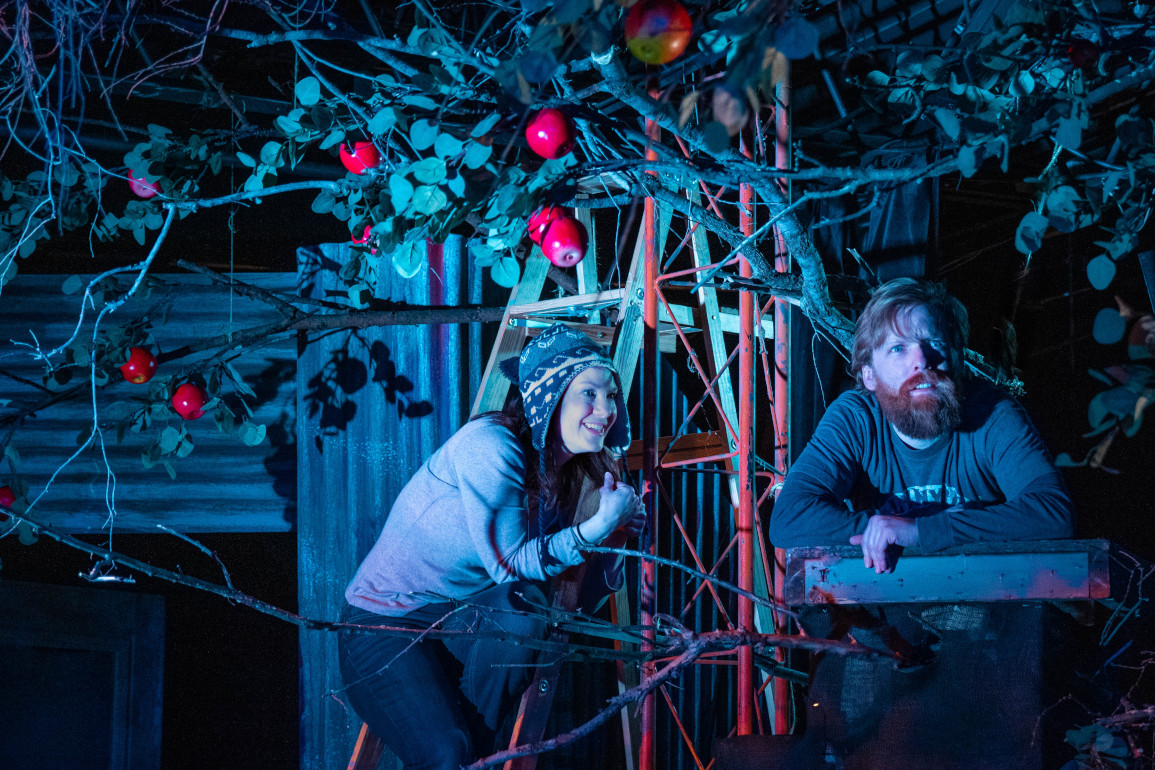
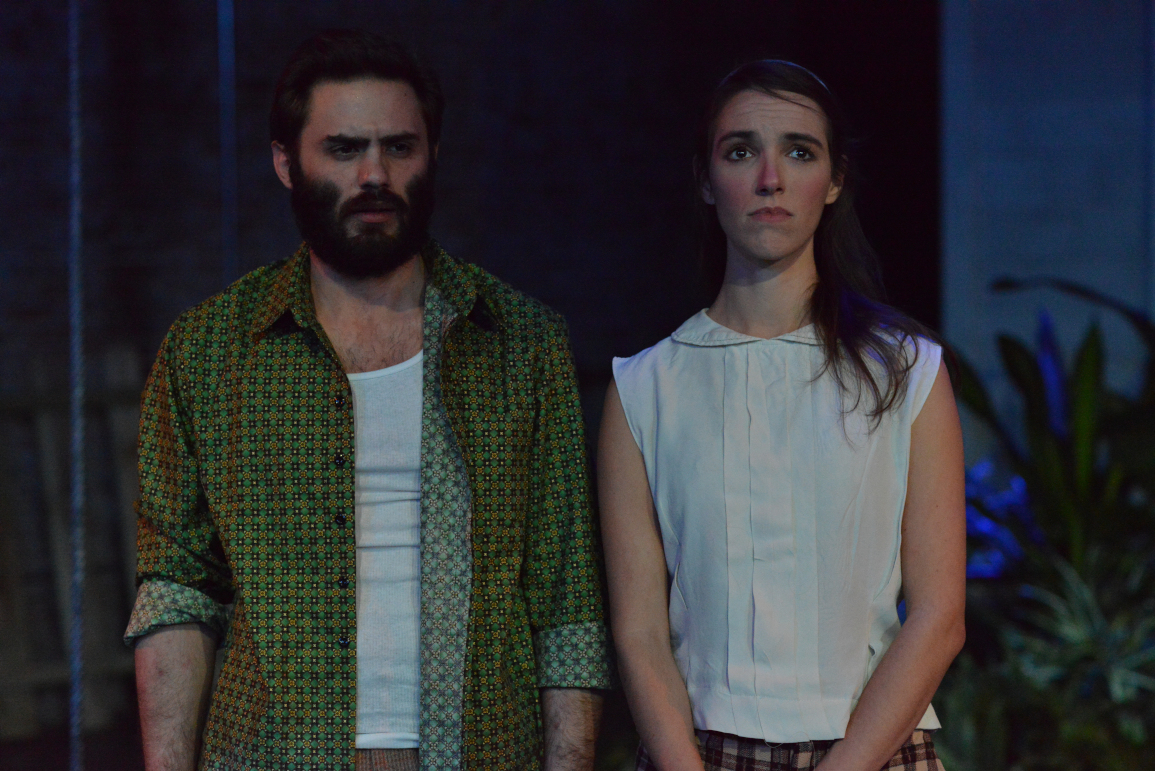
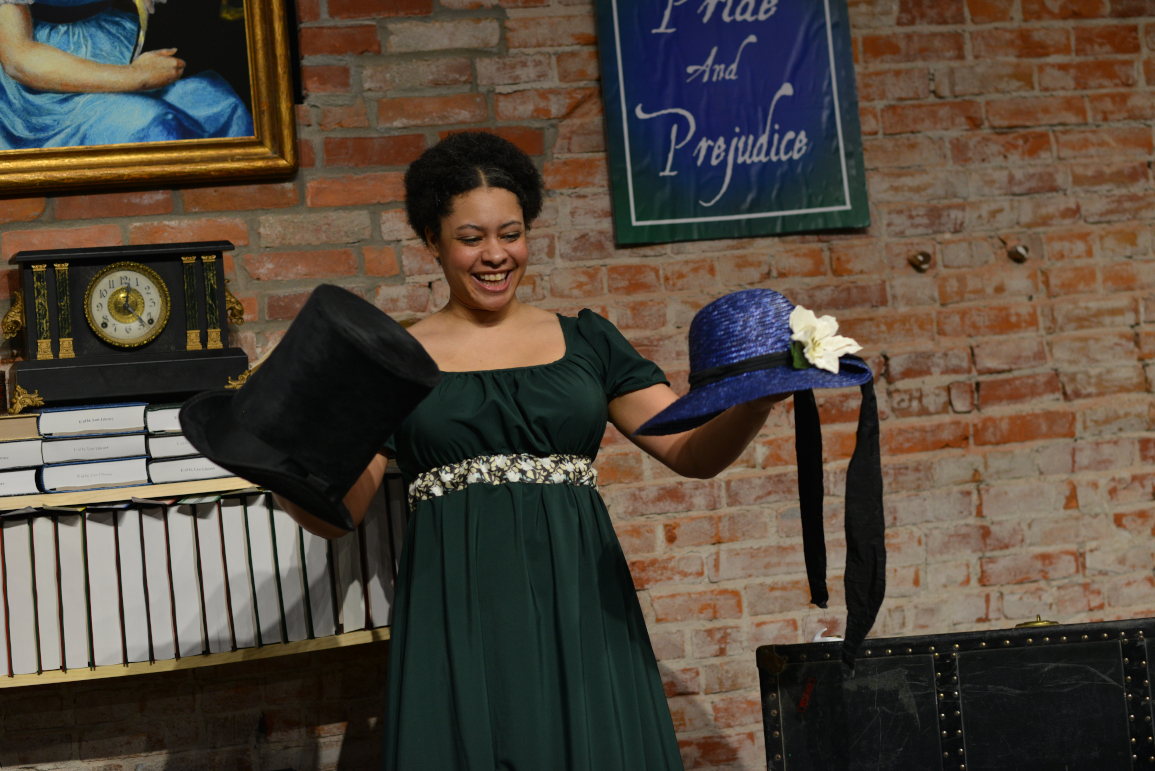
MISSION OF RIVERSIDE THEATRE
REVISED MISSION STATEMENT
A great city deserves serious theatre: Theatre that sparks discourse, builds community, delights, inspires, breaks down barriers, and explores the complexities of the human spirit. Riverside Theatre strengthens the cultural fabric of lowa City through intimate, engaging productions from classics to new works, fostering a deeper appreciation for the dramatic arts.
PREVIOUS MISSION STATEMENT
To foster appreciation of the dramatic arts.
COMMENT
We decided on several “why’s” for this mission statement, which includes many descriptions of how staff and board view what Riverside is already doing. The first sentence highlights Riverside’s place in the lowa City ecosystem. The next sentence outlines what serious theatre does. The final sentence goes further in outlining the effects of serious theatre on our community and on individuals, while keeping extant our original mission language. In short, this revised mission is about the power of theatre and how it can change our community for the better.
VISION OF RIVERSIDE THEATRE
NEW VISION STATEMENT
A theatre of passionate professionals helping to build an inclusive, world class cultural city.
COMMENT
A succinct vision statement. One item that came up in staff and board surveys as well as the strategic sessions was the importance of the “professional distinction in what Riverside does and how it employs artists. “Inclusive” speaks to the need for change, outreach, and hat art belongs to everybody, not to the exclusive few. Anot focus was the desire for Riverside to align more closely to organizations solidifying lowa City’s strong cultural reputation. Englert and Film Scene’s Strengthen-Grow-Evolve campaign has branded lowa City “The Greatest Small City for the Arts.” Iowa City is also consistently on lists of the best small arts towns in the United States and is a UNESCO City of Literature. Thus, part of this vision statement is “helping to build”, which acknowledges the hard work of many other leaders in the community — and that Riverside has a part to play.
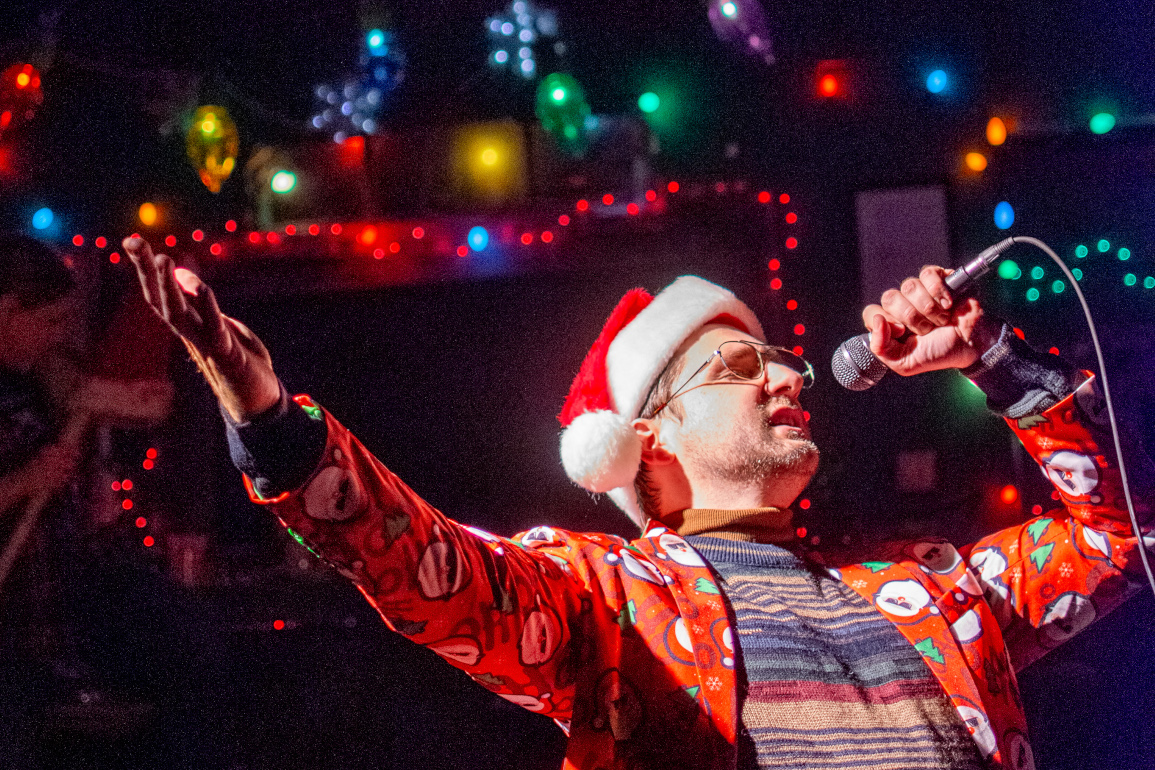
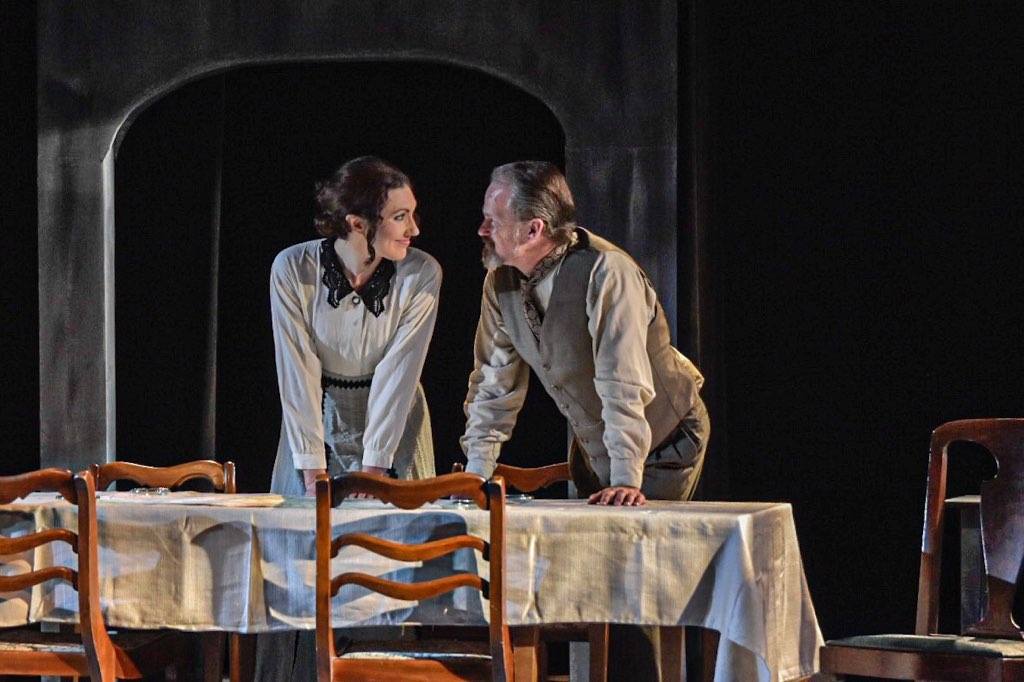
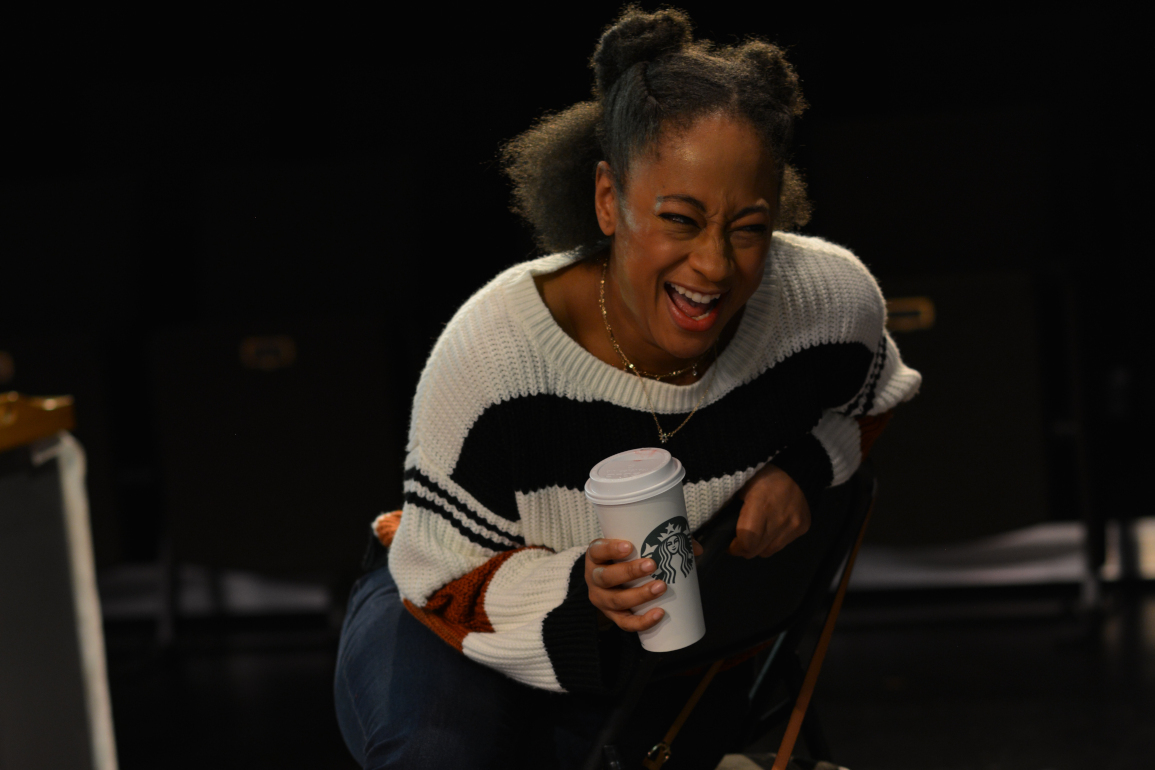
RIVERSIDE’S VALUES
EXCELLENCE
Delivering high-quality art and programming, from vital classics to new works.
COMMUNITY
Creating diverse and supportive networks of people and ideas through
shared experiences.
INTEGRITY
Adhering to the highest standards of ethics, stewardship, and public trust.
INCLUSION
Fostering environments where people and ideas are welcomed, considered
seriously, and treated with dignity. Rethinking old systems and norms.
INSPIRATION
Fostering art that asks big questions and sparks creativity in artists and audiences.
STRATEGIC GOALS
EXPAND THE TYPES OF STORIES WE TELL — AND WHO GETS TO TELL THEM.
Growing the canon: new and contemporary works alongside vital classics each season. Rethinking casting. Highlighting underserved viewpoints.
EXPERIENCES THAT CONNECT AUDIENCES TO PLAYS AND ARTISTS BEYOND THE STAGE.
Theatre as a gathering place. Talkbacks. Backstage experiences. Ways to connect before the lights go down and after the lights come up.
ARTISTIC AND CULTURAL LEADERSHIP IN IOWA CITY.
What does it mean to be a flagship professional theatre? Acknowledging Riverside’s unique role in our community and joining with other organizations and leaders to affect positive change.
CULTIVATE AND CAPTIVATE DIVERSE, ENTHUSIASTIC, AND LOYAL AUDIENCES.
Solidifying existing relationships while reaching new patrons. Engaging them. Letting them know their investment matters.
DIVERSE AND SUSTAINABLE SOURCES OF REVENUE AND SUPPORT.
Envisioning an organization that can survive shocks through multiple income streams and a broad community of supporters.
EXPAND THE TYPES OF STORIES WE TELL — AND WHO GETS TO TELL THEM.
Growing the canon: new and contemporary works alongside vital classics each season. Rethinking casting. Highlighting underserved viewpoints.
EXPECTED SHORT-TERM OUTCOMES
• Artist awareness/motivation
• Knowledge of what attracts artists
• Audience knowledge of artistic quality
• Distinction locally Establish artistic advisory Committee
EXPECTED MID-TERM OUTCOMES
• Professionalism
• Attendance of younger patrons
• Artist auditions/applications
• Artist sponsors
• World premieres Partnership with diversity-minded institution
EXPECTED LONG-TERM OUTCOMES:
• Regional brand as nationally recognized theatre
• National brand as high-quality new play theatre
• Second productions of new plays
• New play commissions
OBJECTIVES
• Increase plays by and for women, LGBTQ+, and BIPOC artists
• Increase gender-inclusive and color-conscious casting
• Accessible spaces for all artists
• Be a known launching place for soon-to-be nationally recognized writers and artists
• Continue and expand Free Shakespeare programming each summer
EXPERIENCES THAT CONNECT AUDIENCES TO PLAYS AND ARTISTS BEYOND THE STAGE.
Theatre as a gathering place. Talkbacks. Backstage experiences. Ways to connect before the lights go down and after the lights come up.
EXPECTED SHORT-TERM OUTCOMES
• Establish a Riverside membership program
• Student awareness in programs
• Volunteer involvement
• Corridor partnerships
• Educational partnerships
EXPECTED MID-TERM OUTCOMES
• Artist (acting, directing, design) outreach/interaction
• Special events and talkbacks
EXPECTED LONG-TERM OUTCOMES
• Being a Riverside patron meaning much more than buying a ticket to a show.
• Increased engagement and participation in a creative community
OBJECTIVES
• Expand student engagement and depth of participation in educational outreach with Will Power and other programming.
• Expand activities that facilitate artist and audience interaction and dialogue.
• Curate “behind the scenes” and other in person and virtual experiences.
ARTISTIC AND CULTURAL LEADERSHIP IN IOWA CITY
What does it mean to be a flagship professional theatre? Acknowledging Riverside’s unique role in our community and joining with other organizations and leaders to affect positive change.
EXPECTED SHORT-TERM OUTCOMES
• Awareness of RT activities
• Collaborations/partnerships
• Engagement with state and local leaders
EXPECTED MID-TERM OUTCOMES
• Shared programming
• Business sponsorships
• Media engagement
• Collaborative campaigns
EXPECTED LONG-TERM OUTCOMES
• RT as community hub
• I.C. is known for its great theatre with public policies supportive of art and artists
OBJECTIVES
• Create, build, and maintain collaborations with peers, public entities, media, and businesses that advance arts and culture in Iowa City and the greater Corridor.
• Open Riverside’s doors to more than just theatre. (Riverside’s artistic and cultural influence reaches beyond core programming.)
• Maintain a professional company adhering to national standards and in communion with organizations such as the National New Play Network and Actors’ Equity Association.
CULTIVATE AND CAPTIVATE DIVERSE, ENTHUSIASTIC, AND LOYAL AUDIENCES
Solidifying existing relationships while reaching new patrons. Engaging them. Letting them know their investment matters.
EXPECTED SHORT-TERM OUTCOMES
• Awareness of RT activities
• Audience interaction
• Volunteer involvement
• Corridor partnerships
• Recognition of loyal patrons
EXPECTED MID-TERM OUTCOMES
• Participation from new patrons, depth of interaction and new experiences with longtime patrons
audience diversity
• Patron services staff
• Address long term facilities needs downtown
EXPECTED LONG-TERM OUTCOMES
• Sustainable and diverse audience base across seasons
OBJECTIVES
• Increased understanding of current audiences. Identify members, single-ticket buyers, and first-time patrons and how best to serve them.
• Expand marketing and promotional resources, including targeted marketing for each play.
• Improve audience experience within our theatres.
DIVERSE AND SUSTAINABLE SOURCES OF REVENUE AND SUPPORT
Envisioning an organization that can survive shocks through multiple income streams and a broad community of supporters.
EXPECTED SHORT-TERM OUTCOMES
• Awareness of need
• Motivation to give
• Knowledge of theatre’s purpose and positive role in community
EXPECTED MID-TERM OUTCOMES
• New/sustaining/legacy patrons
• Overall attendance
• Grant opportunities
• Product revenue
• Rental events
EXPECTED LONG-TERM OUTCOMES
• Endowment
• Investment Income
• Product Line
OBJECTIVES
• Increased awareness of our audiences, patrons, and funding opportunities.
• Increase development dollars and grants, donor base, and the ways in which donors can give.
• Increase earned revenue as a percentage of total revenue (35% in 2018-19) through increased number of events, curated concessions, and rental opportunities.
